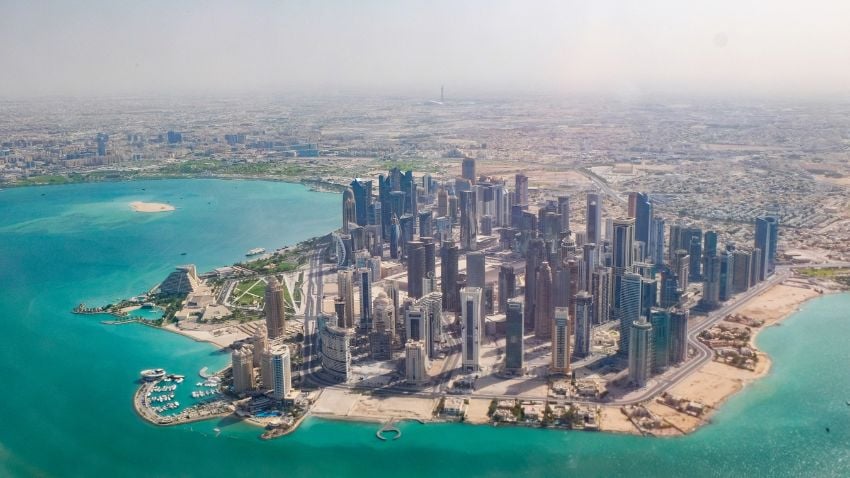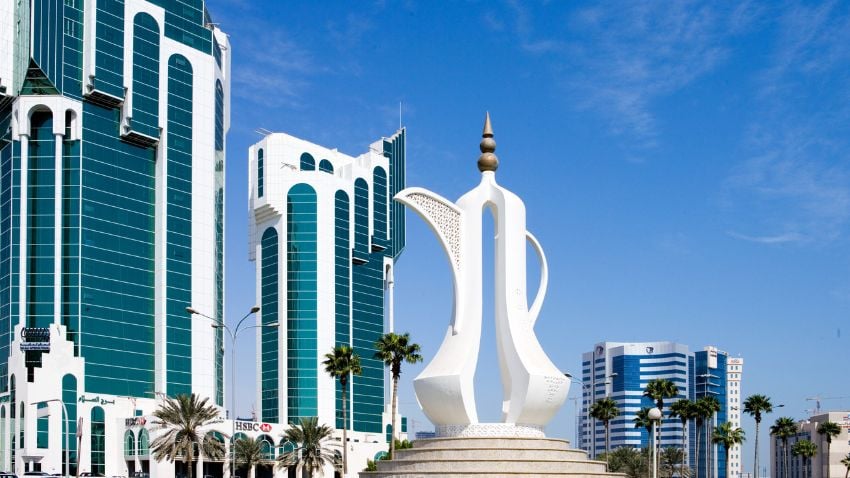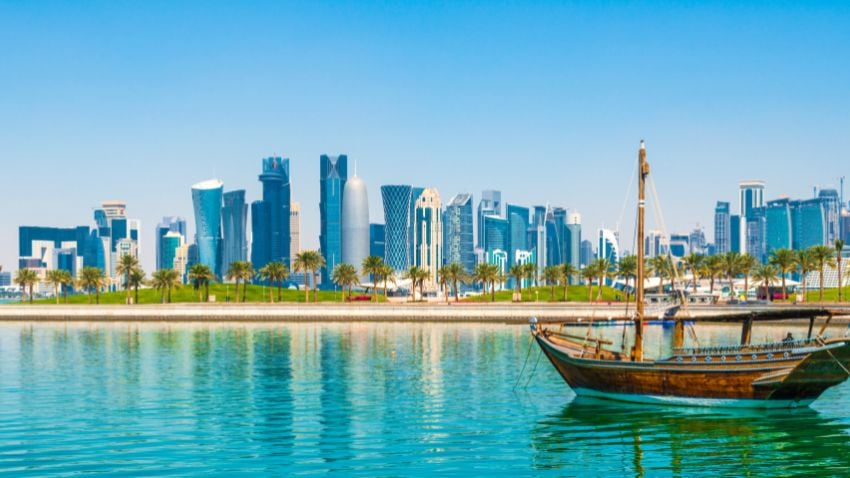Latin America’s Rightward Shift Continues In Honduras
Honduras’ newly elected president, Nasry Asfura of the conservative National Party, was sworn in on January 27, 2026. The election, held on November...

4 min read
Qatar is a Muslim nation famous for its tax and business-friendly environment and natural resources such as natural gas and oil. There is no income, wealth or value-added taxes. The industrial sector represents over 50% of the country’s GDP, but the service sector is a leading economic driver too. Other data that speak highly of the State of Qatar are:
Following many years of budget surpluses, Qatar has passed new laws to ensure the sustainability and diversification of its economy. Qatar National’s Vision of 2030 plans on using the country’s wealth to develop other economic sectors. The country is in a privileged position with easy access to African, European and Asian markets. On top of that, Qatar offers solid legislation for setting up trusts.

Qatar buildings
Establishing a trust in Qatar requires resorting to the Qatar Financial Center (QFC). A grantor might use a trust for multiple purposes, such as charity, family assets management and inheritance planning. The grantor will delegate the administration of the assets to a trustee (individual or corporation) who will operate the trust for the benefit of the beneficiaries (individuals or corporations) in compliance with the trust’s rules.
Qatar’s case is a bit unique since it offers this Common Law vehicle, but at the same time, Sharia Law governs the country. Qatar was a British protectorate from 1916 to 1971. It preserved its Islamic roots and ended up adopting Trusts, so both Sharia and Common Law govern the Trusts in Qatar.
Creating a trust requires the grantor to be capable of creating a trust and indicate a firm intention to create the trust. The trust must have a definite beneficiary or be a purpose trust (designed to hold or invest in shares of companies). Moreover, the trustee must possess or guarantee property for the benefit of a beneficiary or a purpose and fulfill specific duties. It must be noted that the same person cannot be the only beneficiary and the only trustee. A Trust could have a beneficiary and a purpose at the same time. This means, for example, that you could employ it to plan your estate and invest in various assets too.
A beneficiary must be a living person or someone yet to be born (for example, future grandchildren). A trust must have a concrete beneficiary and purpose. A Trust purpose must be concrete enough, legitimate in the Qatar Financial Center (QFC), and compliant with public policy. The Trust’s provisions must be implemented literally, whether for the benefit of the beneficiaries or for the purpose of why it was established.
Another positive aspect of a Qatar Trust is that its duration can be indefinite, while at the same time, the grantor can specify its duration. The regulation also states that “no rule against perpetuities or excessive accumulations shall apply to a Trust.” Simply put, it is permissible for a Trust to last forever and increase its value limitlessly. Now, let us discuss the simple procedure to establish a trust in Qatar.
Related content: The Basics of How To Get a Second Passport Or a Second Residency.

Corniche Doha Skyscraper, Qatar
A trust will be valid only if the Qatar Financial Center authority approves it. Then, the grantor shall apply for the registration of a trust by signing and providing the “Prescribed Form” (approved by the QFC Authority) along with “Prescribed Fees” ($5,000 USD application fee). Only a future trustee may register the trust. Under all circumstances, the trust must have at least one trustee who is obliged to keep their details up to date and correct. While registering a trust, the Qatar Financial Center Authority must issue a certificate stating the trust is registered as such with the name written on the certificate and start from the date of the certificate, assign the trust a registration number and register the following data:
This certificate will ensure the trust formation has complied with the registration process. The Qatar Financial Center Authority must keep track of the registered trusts (Register of Trusts). All information will be public only in the cases of a statutory obligation or a court order. A Trust is invalid if it:
Related content: The Differences Between Trusts And Foundations

Qatar on Map
Purpose assets are a subcategory of trusts that can be used for non-charitable reasons such as investments. To be regarded as such, it must fulfill the following conditions:
Charitable trusts are exempt from taxation. To be considered as such, it must fight against poverty, promote education or religion, protect the environment or have any purpose devoted to the general public. There exist other categories of Trusts aside from Purpose and Charitable ones:

Doha, Qatar - skyline of Doha with dhow
The trust legislation does not entitle a trustee to any remuneration for their services unless mandated by the trust terms, the beneficiaries or a Qatar Financial Center Court order. However, the law is unclear regarding how the remuneration may vary. The two cases are:
The trustee must deal with many responsibilities, and the law prevents them from not complying with the trust’s rules. Unless specified by the trust deed, a Qatar Financial Center court order, or the regulation dispositions, a trustee cannot:
A trustee must also keep track of accounts and records of their trusteeship. Even after their trusteeship ends, all this information must be preserved for five years. Always based on the trust’s rules, a trustee can invest, manage and distribute the trust's property. All in all, a trustee must work for the interests of the beneficiaries or according to the trust’s rules.
The Qatar Financial Center provides access to a world-class professional network of bankers, financial advisers, legal advisers and more.
Related content: Guide to Setting up a Trust in the Cook Islands
.jpg?width=850&name=Articles%20(850%20%C3%97%20478%20px).jpg)
Qatar State Mosque
Qatar Trusts present several benefits, such as strong privacy, low taxation and solid assets protection against trustee mismanagement and lawsuits. In addition, there exist multiple trust types to choose from according to your needs. You can benefit from this solid asset protection tool at a reasonable price, be surrounded by high-quality professionals, and protect your wealth.
If you want the best intel from the expat world, including profitable offshore opportunities, little-known tax-saving strategies, and hard-won insights on immigration, passports, and Plan-B residencies, all delivered to your inbox every single week, then join our daily correspondence, EMS Pulse®. Currently enjoyed by over 84,000 expats and expat-hopefuls worldwide. Fill in the form below to join our newsletter free:

Written by Mikkel Thorup
Mikkel Thorup is the world’s most sought-after expat consultant. He focuses on helping high-net-worth private clients to legally mitigate tax liabilities, obtain a second residency and citizenship, and assemble a portfolio of foreign investments including international real estate, timber plantations, agricultural land and other hard-money tangible assets. Mikkel is the Founder and CEO at Expat Money®, a private consulting firm started in 2017. He hosts the popular weekly podcast, the Expat Money Show, and wrote the definitive #1-Best Selling book Expat Secrets - How To Pay Zero Taxes, Live Overseas And Make Giant Piles Of Money, and his second book: Expats Guide On Moving To Mexico.

Honduras’ newly elected president, Nasry Asfura of the conservative National Party, was sworn in on January 27, 2026. The election, held on November...

For a growing number of Americans, cost-of-living math no longer works. Housing feels harder to reach, everyday costs keep climbing, and long-term...

Costa Rica has become one of the most popular expat and digital nomad destinations in Latin America, known for its natural beauty, relaxed lifestyle,...